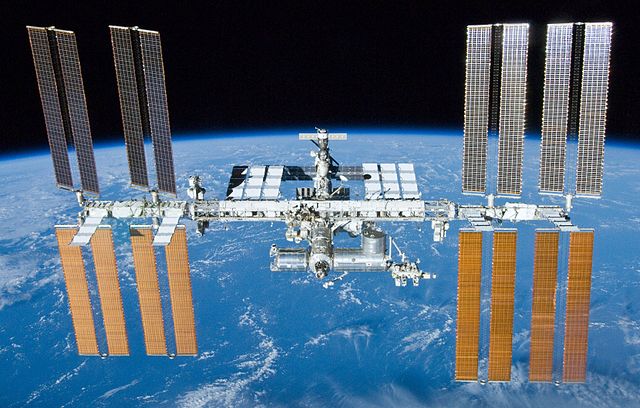Voting in a Tin Can
The amount of ink that has been spilled over the sanctity of the right to vote could likely fill Lake Superior. The citizen’s right to vote is a defining characteristic of democracies and, therefore, taken with the utmost seriousness in many areas, including throughout the United States. There are often voting problems, of course (here’s my story from 2012, for example — you’ll note that there’s nothing nefarious about it, just the result of a fractured process), but in general, on Election Day, everyone is able to go to their polling station and cast a vote for their preferred candidates. Some voters, who can’t make it to the polls, obtain absentee ballots a few weeks beforehand and toss them into the mail. If you have access to the Postal Service, you effectively have access to the ballot box.
And that’s just about everyone on Earth. But what about those voters who aren’t on Earth?
As of this writing, there are six people aboard the International Space Station orbiting the planet. Of those six, two are Americans. These two people can’t simply put a ballot in the mail and cast their vote — mail trucks don’t have the ability to hit escape velocity — and the trip to their voting precincts is both expensive and cumbersome, to say the least. But we’d hardly want our astronauts to be disenfranchised. To solve this, Texas, in 1997, passed a law allowing astronauts who were aboard the ISS (or otherwise in orbit or beyond) on Election Day to cast their votes from space. That year, astronaut David Wolf became the first American to vote from space, doing so from the Russian station Mir.
The votes are, effectively, emailed in, making Texas the first jurisdiction to allow for such methods of voting (albeit only for a very limited group). Officials from the astronauts’ home counties — in 2010, that was Galveston and Harris Counties (both in Texas) — travel to Mission Control at Johnson Space Center in Houston and prepare ballots which are sent into space via a secure communications link. The astronauts’ cast their ballots via that same link, directly to the county officials. As NPR noted, the astronauts’ ballots cannot be secret ones due to the method of transmission, unfortunately, but otherwise, their votes are just like any one else’s.
So far, only one astronaut has voted for President in space. That occurred in 2004, when commander Leroy Chiao voted for — well, we don’t know, that’s gone unreported, thankfully — while above the Earth on board the ISS. Coincidentally, Chiao voted in an election in which George W. Bush was a candidate, and Bush is a large part of why Chiao was able to vote in the first place — he was the governor of Texas who signed the space voting bill into law.
Bonus Fact: Voting doesn’t always happen flawlessly, as many voters have experienced. But what happens when the government just forgets to schedule an election entirely? That’s actually happened a few times, and recently at that. On November 5, 2013, the town of Wallsburg, Utah, was supposed to hold elections but, well, didn’t. And it wasn’t the first time town officials forgot to hold an election, either. They made the same error two years earlier. The town government’s officials were appointed (by whom is unclear) in 2011 and re-appointed in 2013 due to the mistakes.
From the Archives: Swing Vote: When one man’s vote decided the fate of the Presidency.
Related: “Behind the Ballot Box: A Citizen’s Guide to Voting Systems ” by Douglas Amy. Two reviews, 4.5 stars.

